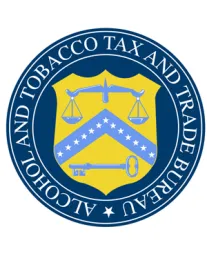In August, the US District Court for the District of Columbia issued its final decision in Bellion Spirits, LLC v. United States, Civ. No. 17-2538 (JEB). The Bellion case was brought by spirits company Bellion Spirits after the Alcohol and Tobacco Tax and Trade Bureau (TTB) refused to approve a series of health claims advanced by Bellion in connection with its vodka products. According to Bellion, the infusion of its vodka with a compound called NTX will mitigate the damage alcohol inflicts on human DNA.
In 2016, Bellion petitioned TTB to approve eight specific claims related to the NTX-infused vodka. After consulting with the federal Food & Drug Administration (FDA), in 2017 TTB rejected all eight claims. Bellion then brought suit, arguing that TTB’s actions with respect to two of its claims were illegal and unconstitutional. Bellion’s complaint advanced four counts alleging that:
-
TTB impermissibly delegated authority to FDA by consulting with FDA during the petition process;
-
TTB’s rejection amounted to the suppression of “commercial speech” in violation of the First Amendment;
-
TTB’s process amounted to an unconstitutional prior restraint on speech in violation of the First Amendment; and
-
TTB’s health claims regulation was impermissibly vague in violation of the Due Process requirement of the Fifth Amendment.
The District Court’s August 2019 opinion granted summary judgement in favor of TTB. The lengthy and entertaining opinion makes a number of important points, summarized below:
-
On the all-important issue of the standard of review, the court acknowledged that while it reviews questions of law de novo, it would review TTB’s factual determinations under the deferential “substantial-evidence” standard. Under this standard, the court does not re-weigh the evidence but upholds an agency’s factual determination if substantial evidence supports that determination.
-
TTB’s relative lack of expertise on public health issues—like the health effects of alcohol—and its decision to seek assistance from FDA do not alter the deferential review given to TTB’s factual determinations.
-
The court rejected Bellion’s claim that TTB impermissibly delegated its authority under the Federal Alcohol Administration Act to FDA by consulting with and relying on FDA’s evaluation of Bellion’s scientific evidence. It explained that although TTB cannot delegate its decision-making to FDA, it did not do so here. TTB merely consulted with a fellow agency to obtain more information and insight in making its own final determination on Bellion’s petition.
-
Applying the four-part Central Hudson (S.Ct. 1980) test for evaluating challenges to government restrictions on commercial speech, the court agreed with TTB’s conclusion that Bullion’s claims were inherently misleading. As such, the speech in question would not receive any First Amendment protection.
-
The court evaluated numerous challenges to TTB’s conclusion that Bullion’s claims were misleading, examining various studies Bellion submitted to the agency. The court ultimately agreed that TTB’s decisions to reject and/or discount various studies were reasonable and supported by substantial evidence.
-
The court also rejected Bellion’s argument that TTB needed to produce surveys or similar evidence in order to find that Bellion’s claims made a misleading link between consumption of Bellion’s NTX compound with better liver and brain health.
-
In the alternative, the court reasoned that even if Bullion’s claims about its NTX-infused vodka were not inherently misleading, TTB’s actions would pass muster under Central Hudson. Among other things, even if denying Bullion’s petition would not advance consumer health, it would directly advance the alternative goal of avoiding consumer deception—a substantial governmental interest on its own.
-
The court further held that TTB acted reasonably in finding that Bullion’s disclaimers would not cure the misleading nature of its claims, and that the First Amendment did not require TTB to evaluate every disclaimer possible in connection with Bullion’s claims.
-
While Bellion did not submit the COLA applications for its vodkas to TTB (its co-packer did), it had standing to challenge TTB’s COLA process as an unconstitutional prior restraint on speech in violation of the First Amendment. Nevertheless, “it seems reasonably clear that the prior-restraint doctrine does not even apply to commercial speech.” Even if the prior restraint doctrine were to apply, the court held that TTB’s COLA scheme would pass constitutional muster.
-
The court rejected TTB’s argument that Bullion could not challenge TTB’s health statements regulations on Fifth Amendment vagueness grounds. Significantly, the court explained that dismissal of an application (like a COLA application) is a sufficient sanction to trigger Due Process fair notice requirements.
-
On the merits of Bullion’s Fifth Amendment vagueness argument, the court found that TTB’s regulations provide adequate notice of how applications will be treated and the substantive criteria for approval of health claims. In particular, the regulations’ requirement that claims be “adequately substantiated” provides specific enough notice to allow interested persons to understand what the regulations require.
So, for the second time this summer, a TTB action (and the COLA process) survives First Amendment scrutiny. The opinion does, however, highlight some pitfalls to avoid should a future plaintiff seek to challenge a TTB labeling decision on constitutional grounds. For the moment, though, we should not expect to see the marketing of “DNA-healthy” alcohol beverages anytime soon.



 />i
/>i
